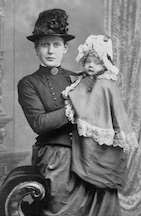New York Magazine – The Cut – Can Attachment Theory Explain All Our Relationships? – By Bethany Saltman
It seems like cultural progress that many people, particularly people interested in either raising children or people interested in their own intimate relationships, are familiar with Attachment Theory.
 There are many fascinating books out there for those who are curious to learn more about the former and/or latter. The two I recommend most frequently are, “Parenting From the Inside Out,” by Dan Siegel and Mary Hartzell, and “Attached, The New Science of Adult Attachment and Attached: The New Science of Adult Attachment and How I Can Help You Find – and Keep- Love,” by Amir Levine.
There are many fascinating books out there for those who are curious to learn more about the former and/or latter. The two I recommend most frequently are, “Parenting From the Inside Out,” by Dan Siegel and Mary Hartzell, and “Attached, The New Science of Adult Attachment and Attached: The New Science of Adult Attachment and How I Can Help You Find – and Keep- Love,” by Amir Levine.
The New York Magazine’s The Cut cover story offers brave and accurate description of what attachment theory is about and what it is not about. Author Bethany Saltman subtitles her work:
The most important parenting you’ll ever do happens before your child turns one — and may affect her for the rest of her life. One mother’s journey through the science of attachment.
Attachment is not about being a ¨velcro¨ parent as some has-been authorities have postulated. It is about attachment figures (men and woman) being able to respond sensitively most of the time to their infants and children’s communications, particularly communications about distress.
 Saltmen reports becoming enthralled about the topic as a young mother. She immersed herself: going to Minnesota to study a seminal research protocol, called the “Strange Situation.” She also took the Adult Attachment Interview (AAI) that remarkably demonstrated how a caregiver scores in the AAI determines 60% to 80% of the time your baby’s attachment style.
Saltmen reports becoming enthralled about the topic as a young mother. She immersed herself: going to Minnesota to study a seminal research protocol, called the “Strange Situation.” She also took the Adult Attachment Interview (AAI) that remarkably demonstrated how a caregiver scores in the AAI determines 60% to 80% of the time your baby’s attachment style.
The Strange Situation and its attachment score (or style) is remarkable at predicting how parental sensitivity to signals of distress will affect related areas of development such as romantic relations as the baby reaches adulthood. A central issue in romantic relations is the extent to which we feel able to expose our vulnerabilities and our needs, and the extent that we can listen to our partners’ needs and expression of vulnerability without becoming defensive, blaming or shaming.
 There are many issues that attachment theory predicts well, but they are predominantly related to intimacy in relations. Moreover, cumulative experiences and current conditions are modifying factors. Insecure, avoidant and resistant attachment are not pathology. They are risk factors that, in conjunction with other adverse stimulus, can lead to psychopathology. A history of a secure attachment is not a guarantee of mental health. It is a protective factor that predicts greater resiliency and flexibility when we are faced with the ¨stings and arrows of outrageous fortune. ¨
There are many issues that attachment theory predicts well, but they are predominantly related to intimacy in relations. Moreover, cumulative experiences and current conditions are modifying factors. Insecure, avoidant and resistant attachment are not pathology. They are risk factors that, in conjunction with other adverse stimulus, can lead to psychopathology. A history of a secure attachment is not a guarantee of mental health. It is a protective factor that predicts greater resiliency and flexibility when we are faced with the ¨stings and arrows of outrageous fortune. ¨
The author did not answer her subtitle: Does attachment explain all relations? To put it differently, is attachment theory a general theory about relations? The answer is a categorical no. It has never meant to be a general theory of human relations. There is abundantly more to human development than attachment issues, for instance, sibling relations, peer relations, socio-economics, affiliation to groups and group identities. All the dimensions of relatedness are vitally important to each of our experiences of being human.
